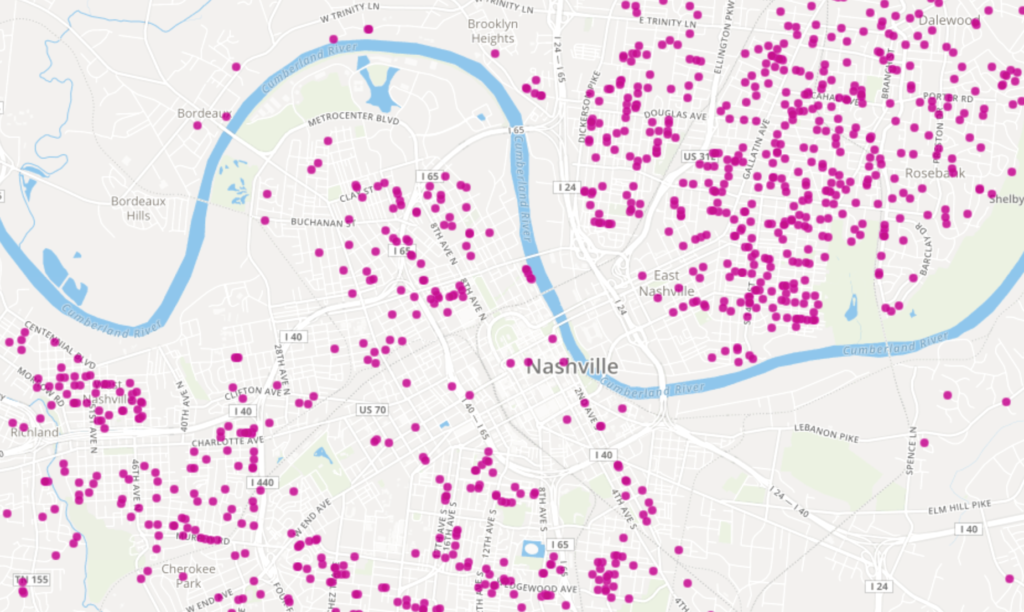
Nashville is again tightening its rules on Airbnbs and other short-term rental properties. The Metro Council voted Tuesday to close what many saw as a final loophole that had allowed investors to get short-term rental permits within a particular type of residential zoning.
As of Jan. 1, 2022, Metro will no longer issue non-owner-occupied permits in what's known as RM multifamily zoning.
While that sounds like a narrow technical change, it will limit short-term rentals at townhomes and small apartments. Council members like Colby Sledge say they've seen an explosion of these types of short-term rentals, leaving homeowners living next to quasi-hotels instead of neighbors.
"You know what's happened: Another complex has completely flipped to short-term rentals. It's happened twice in the last 6 months in the district I represent," Sledge said. "I'm tired of it. I think a lot of people in this body are tired of it."
More:
View Metro's map of short-term rental permits
As part of the new rule, investors who currently hold permits will be "grandfathered" in and allowed to keep them. But they won't be allowed to transfer those permits when they sell their properties — a decision that the rental industry vigorously opposed.
An initial council proposal would have allowed permit transfers for these RM-zoned properties. But Councilwoman Angie Henderson led a fight against that approach. (See the specific rules adopted on
page 13 of this PDF.)
"We have seen over our term how this has metastasized into our apartment communities, our multifamily [areas]," Henderson said. "It has such an effect on neighborhood quality of life, affordable housing … things I know we as a collective body care about so much."
The vote also carried symbolic heft, as it came on the council's final meeting of its four-year term. Over that entire time, members have wrestled with how to regulate Airbnbs, including passing several modifications to the initial rules.
More:
WPLN
'
s
ongoing short-term rental coverage
Councilwoman Burkley Allen has led much of the regulation effort over that time. The council's vote on Tuesday opted for a more strict option than what Allen was pursuing this time.
"I'd hoped we would reach a consensus," she said. "It is very, very hard to make everyone happy."


